Chris Hillman has been a professional musician for nearly fifty years, starting on bluegrass mandolin before he joined The Byrds, for which he played bass guitar and contributed vocals. You can hear him on hits including “Turn! Turn! Turn!”, “Eight Miles High”, and “So You Want To Be a Rock ‘N’ Roll Star”, which he co-wrote.
Hillman left The Byrds after their landmark album Sweetheart of the Rodeo, joining up with Gram Parson (who also played on that album) to form The Flying Burrito Brothers, whose classic debut album The Gilded Palace of Sin featured many songs that he wrote or co-wrote with Parsons. Hillman was also a key member of the band Manassas with Stephen Stills, and had multiple country hits with the Desert Rose Band.
This phone interview took place on 4/11/12, and formed the basis of a preview article for his 4/25/12 show with Herb Pedersen at the Maverick Saloon as part of the Tales From the Tavern series. Incidentally, this interview was transcribed approximately eight miles high, on a flight between St. Louis and San Francisco.
Jeff Moehlis: What can we look forward to at your upcoming concert at the Maverick Saloon?
Chris Hillman: What I’ve been doing for the last few years is working with one other guy, Herb Pedersen. It’s all acoustic, so we mike our instruments, and it’s very vocal-oriented, so we both sing – sing duets – and play. I cover just about a bit of everything from my last forty-nine years, now, of music. Forty-nine years since I was first paid to play. My professional career started in 1963.
So I will do songs from before The Byrds, and then some Byrds songs, and then Flying Burrito Brothers. Basically just covering all of these little places I’ve been musically. And then I’ll pull out some newer songs and some songs from other writers. We try to mix it up. We do all kinds of stuff. We have a good time.
JM: You mentioned that this will be with Herb Pedersen, and by now you have a nice history with him. Could you describe what Herb brings to the music?
CH: Herb is an incredible singer and guitarist, in that he plays just perfect rhythm guitar. He’s probably one of the best ones in the country. As an accompanist he’s terrific.
He’s such a well-rounded, versed singer. He was a very in-demand session vocalist in the 70’s, 80’s, and 90’s, and still does sessions occasionally. He worked for Linda Ronstandt, and Kenny Rogers, and James Taylor, and people like that. I mean, he would do these sessions. And of course was in Emmylou Harris’ band for awhile, then he was in John Denver’s band for a long time.
So what he brings is a very stable musical foundation for me to work off of. He’s always there, and he’s very professional, dependable. And we both came from the same musical roots of traditional folk and country and bluegrass music. So that’s the best part. He knows the songs, he knows how to sing them with me, and we’ve known each other forty-nine years. It’s about since I started, when he started, too. It works out quite well.
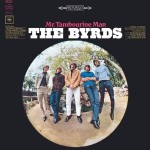
JM: I know that this has been documented elsewhere, but how did you go from being a bluegrass musician who played mandolin to suddenly being the bass player for The Byrds?
CH: I really went from mandolin to bass by just a stroke of luck. I had heard the fledgling group sing together. It was just the three of them: Roger McGuinn, David Crosby – Santa Ynez resident by the way, and Gene Clark. I heard them sing with one guitar, and they were just beautiful. And when I got the call and they said, “Can you play bass?” I said, “Yeah.” I couldn’t play bass. I’d never touched a bass. But I knew that there was something special about the sound they were making. So I learned. I really, literally learned to play the bass.
But then when I went down to start the practice session with them, the first day, I realized they were learning, too, so it was OK. I didn’t walk into something where I had to play a lot of catch-up. I learned, I learned to play, and I think the fact that none of us really were coming from a rock ‘n’ roll background helped to create the unique sound of The Byrds.
JM: The arrangements of The Byrds’ songs are really outstanding. How did those typically come together?
CH: It was a joint effort between the five of us. We’d sort of play it and figure it out. But Roger McGuinn’s twelve string was a pivotal part of that sound, and he was a very experienced player, had been around, toured a lot around the United States as an accompanist to other groups. So I would say he had the most experience, but we drew the sound off of his twelve-string and then we all added our parts. And sometimes the arrangements, they would just come together. You know, everybody participates.
JM: Do you feel that your producers were important to the process?
CH: Very helpful. And we had a manager and producer, who’s passed away now, Jim Dickson. Very, very influential in our direction and our sound. He was really guiding us. Very, very important to the beginning of the band. A lot of things I learned from that man. He guided us into good material, and paying attention to recording songs that we’d be proud of thirty, forty years down the line. And he was right. Most of the ones, ninety percent of The Byrds material that we recorded stands up to me today. I think it’s very good, sophisticated music.
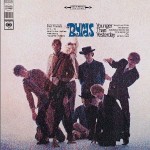
JM: On the fourth Byrds album, Younger Than Yesterday, you emerged as a significant songwriter. What was the catalyst for that?
CH: I think it was waiting to come out. It just was the right time. And I’d come home from playing for this session. I got hired to play the bass for Hugh Masakela, who was a South African trumpet player, who had had a hit song called “Grazing in the Grass” back then. It was an instrumental, it was a pretty big hit. But I worked a session a couple of days for him, and it was so stimulating, exciting, it was a whole different kind of music. Somehow it just broke the door down, and I started writing a song. It had nothing to do with what they were doing – the session was completely different. The first song I wrote was called “Time Between”, really sort of a country song.
JM: One of the songs on that album was “So You Want To Be A Rock ‘N’ Roll Star”. What is the story behind that song? It seems to have a bit of cynicism behind it.
CH: Well, it was sort of, it was a bit. We were looking at things, but we were still young guys when we wrote that. I think we’d been around a couple of years, and we were watching it all just come together.
It was really about the process of The Monkees, and nothing against them as individuals, but that Hollywood had this sort of contrived, silly, weekly sit-com about a rock band. It was just sort of, well… contrived is a good word. I drew the inspiration for that song off of that process. Here they are making a bad copy of The Beatles’ A Hard Day’s Night, one of the greatest of all time, with The Monkees. But it’s not against them. They were good guys, and they had a great job. They were getting paid a lot of money. But it was just the way they put that all together and everything.
But again, I should really say, it didn’t really, specifically point at them as much as just, all of a sudden the record business became a lot bigger, and it was a lot about image. Now look at it. You see these country acts now, that it’s all about image. And American Idol, all that stuff. It doesn’t resonate with me anymore, it’s not as musical as it used to be.
Also, the music of “Rock ‘N’ Roll Star”, that particular song, was influenced by the Hugh Masakela sessions, because the way play we play that – and he’s on the track playing trumpet – the way we do that is very of much what I gathered from playing those sessions. Sort of a different feel to it.
JM: Around that time, The Byrds played at the Monterey Pop Festival. What was that experience like for you?
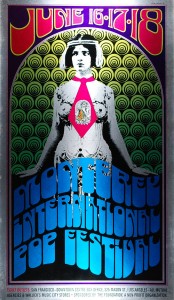
CH: That was the best pop festival ever. I mean, I’m sorry, Woodstock was not. I wasn’t there, but I saw enough of it, what was happening. It was a nightmare. I’m glad I didn’t play that festival.
Monterey was letter-perfect, the weather was great, the acts were diverse, interesting. Acts from Jimi Hendrix to Otis Redding to Ravi Shankar. It was a great weekend. Everything worked, there were no problems, there were no drug problems – there were drugs, I’m sure, but there weren’t problems. There weren’t any situations that arose, you know? To me – and you can look at every other festival they’ve ever had in that particular area and timeframe, from ’66, ’67 on to ’70 – that’s the best. I think that everybody that was there, whether as an observer or a participant, would agree with me.
JM: In The Byrds, was it hard to keep the momentum going when, say, Gene Clark and David Crosby departed, or were those viewed as opportunities to evolve with the music?
CH: Well, you don’t want to lose anybody, but when that happens you sort of gather up your warriors and look at the whole situation, and continue on. And we did a lot of good things. When Gene left we made some good records. When David left we made two good records, Notorious Byrd Brothers and Sweetheart at the Rodeo.
I’d have preferred to have the original band. I think that was the very best example of The Byrds ever, the original five guys. But, you know, I’m certainly not ashamed of anything we did when they left. We made some really good records. You sort of count your losses and go onwards. Yeah, and evolve. You re-evolve and reset it and go on with it.
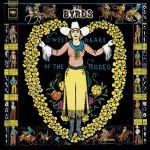
JM: There certainly was a big change with Sweetheart of the Rodeo, and that was when Gram Parsons came in. When you doing that album, did you realize that it was going to be a groundbreaking album?
CH: Not at all. I was just having a good time. I don’t think I ever went into an album and thought after that this is going to be a great record, this is going to sell millions. I never thought that. We just did what we did, followed our instincts.
It was fun to do that record, because I was already coming out of a country music background. Gram was a good ally to have. He understood the music. It’s an interesting record. It’s not my favorite record, but it was a good example, it was a good start. I think Sweetheart of the Rodeo opened the floodgates for West Coast country rock music to start coming along. It set some amazing examples.
JM: Of course, that was the beginning of your fruitful association with Parsons, going into the Flying Burrito Brothers. Gram Parsons by now is a mythical figure. Could you describe the Gram Parsons that you knew?
CH: The guy that I knew was a really sweet guy. I had two good years with him. He was hard-working for that two-year period. He probably wrote some of his best material then. And he wanted to do it. He wanted to really put the time in and do it.
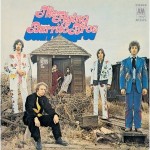
And I lost him. I had to break off the relationship, and I don’t think he ever got a hold of himself after that. But from The Byrds album to the first Flying Burrito Brothers album, he was really great. Good guy. He was like a brother to me. Then he got under the dark cloud of drugs and alcohol, and it was over. As it does for everybody. Never fails. There it is. That’s all I can tell you.
JM: Probably my favorite of yours is “Sin City”, off that first Flying Burrito Brothers album. What’s the story behind that song?
CH: Literally, that song was written in twenty-five minutes. And based on true things that were happening around us. I started it, he [Gram] was asleep. We were sharing a house in the Los Angeles area. It was coming real quick, I woke him up, and we finished it off. It was just based on some things that were going down. We had a manager that was robbing us, that we’d had bad dealings with. And just various things. It was just mirroring the culture of the time, really. The last verse is about Robert Kennedy. The second verse, I’m not quite sure what that’s about. Gram wrote that one. I don’t know if he was awake yet [laughs]. It works though.
JM: The Flying Burrito Brothers played at Altamont.
CH: That was the worst rock festival ever, OK? It goes from Monterey, which is idyllic, peace and love, to Altamont, within a two year period, to murder. It pretty well covers the spectrum. Right around when Altamont happened was the end of The Sixties. That was it. Not literally, but figuratively. The end of The Sixties. The experiment was over.
I can’t tell you how horribly ugly that day was. I played, and I got off the stage and I got out of there as quick as I could. I knew something bad was going to happen. When we played, the Burritos, we actually calmed the crowd down. We had them calm as can be. And then we got done, I left, so I don’t know, it got pretty bad after that. The Stones took forever to get onstage. It was not a good day. There’s a lot of books on that, if you ever want to revisit that.
JM: I interviewed Paul Kantner, and he was talking about Altamont. You know, someone came on stage and hit Marty Balin during their performance.
CH: It was horrible. Yeah, Marty got hit. When I was going up to get onstage and set up, David Crosby was coming down, and he looked at me and said, “Be careful.” That’s all he said. “Be careful.” Then I had to talk two Hells Angels into letting me onstage. I’m holding my bass, and I said, “I’m going to play now.” It was like talking to two wild animals, you know, trying to negotiate with a tiger or something, that’s going to eat you [laughs].
I guess I could say that I had to play both ends of the spectrum, yeah.
JM: What was your reaction when you heard that Gram Parsons had died?
CH: Well, I was upset. But I tell you something, in all honesty, Jeff, I thought he was not long for this world. And when he came back from England, he was an alcoholic, after being a junkie for a long time. And he had changed. He had gained weight. He was not looking good. And I just said, you know, “this isn’t good”. I didn’t think he was going to live very long, as anybody, if they’re into that kind of regimen, their life expectancy is drastically cut down. Yeah, your body can’t take that. And it wasn’t like Gram was in incredible health all the time. He was sort of a frail guy. So he loaded himself up with stuff like that, and it was just a matter of time.
I didn’t say “it serves him right”, I didn’t say that. I just was very upset he had passed away. And we’d lost Clarence White prior to that, but Clarence had been hit by a drunk driver. That’s a different ballgame. If Gram had had a bit of discipline and a work ethic, he probably would’ve been a huge country star. He had the talent, but he lacked what it takes. It takes hard work, and a very focused, sober demeanor, is the best way to put it. That’s what it takes.
Especially nowadays. Good God almighty. There’s not even a music business. You have to really be in an extreme amount of luck to be even able to get a following going. You might not last but for a year or so, in this day, in this environment now.
He [Gram] was a good guy. I really, really enjoyed working with him, and I love the songs we wrote together. Like you like “Sin City” – so do I. I like that song a lot. I still play it every night.
JM: What advice would you give to an aspiring musician?
CH: OK, I would give this advice to an aspiring musician. I would say, follow your dream. But, have a backup plan. Most of the young kids who ask my advice are in their late teens, or maybe their early twenties, and I say, listen, you’re not going to like what I’m going to say to you, but get a college degree. In something you really enjoy. Get a four-year degree if not a Master’s degree.
Don’t stop playing music. Play wherever you can. Don’t even worry about getting paid. In a college environment, campus environment, there’s a million places you can play. Have a band, meet other guys, da da da da da. You’ve got to have a backup plan. Because even if you had a hit record, and a hit album, and all that, like I just said, I don’t know how long one can maintain that over a period of time anymore. It may be the greatest thing in the world for a year. There’s exceptions, but…
There’s also things, where I see a lot of these very popular groups, and a lot of the members have, like, degrees in physics and things. It’s an amazing thing.
But I’m dead serious with these kids nowadays. Get a four-year degree, which isn’t much. Try and get a four-year degree, if not a Master’s degree. Don’t stop playing the music, but don’t put all your eggs in that one basket. Do not put everything into it. Don’t give up the band, but don’t rely on that to be your ticket. If it falls part, and all of a sudden you’ve put three years into it, you’re twenty-three, twenty-four years old, going back to college then is a little tougher. And it’s tough enough to even have a job when you do get a degree these days. It’s really hard out there. If you don’t have a degree, forget it.
That’s my advice. It’s hard advice, but I stand by it.
JM: Where am I reaching you at?
CH: I’m in Ventura, California.

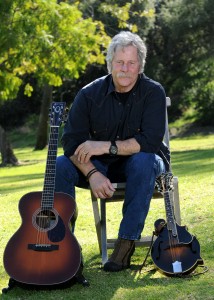
Discussion
No comments for “Interview: Chris Hillman”